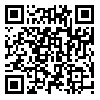Volume 4, Issue 3 (September 2025)
IJER 2025, 4(3): 0-0 |
Back to browse issues page
Download citation:
BibTeX | RIS | EndNote | Medlars | ProCite | Reference Manager | RefWorks
Send citation to:



BibTeX | RIS | EndNote | Medlars | ProCite | Reference Manager | RefWorks
Send citation to:
Sedqi Khalifani E, Abasi M, Sammehr V, Rastinpoor N, Ghazi Asgar F. (2025). Effectiveness of Reality Therapy on Self-control and Adjustment in Adolescents. IJER. 4(3),
URL: http://ijer.hormozgan.ac.ir/article-1-365-en.html
URL: http://ijer.hormozgan.ac.ir/article-1-365-en.html
1- BA in General Psychology, Urmia Branch, Islamic Azad University, Urmia, Iran
2- Department of Psychology, Faculty of Humanities, Arak Branch, Islamic Azad University, Arak, Iran ,Psy.majid66@gmail.com
3- PhD student in Psychology, Urmia Branch, Islamic Azad University, Urmia, Iran
4- BA in Counseling, Dezful Branch, Islamic Azad University, Dezful, Iran
5- MA in School Counseling, Shahid Beheshti University, Tehran, Iran
2- Department of Psychology, Faculty of Humanities, Arak Branch, Islamic Azad University, Arak, Iran ,
3- PhD student in Psychology, Urmia Branch, Islamic Azad University, Urmia, Iran
4- BA in Counseling, Dezful Branch, Islamic Azad University, Dezful, Iran
5- MA in School Counseling, Shahid Beheshti University, Tehran, Iran
Abstract: (920 Views)
Objective: The present study aimed to determine the effectiveness of reality therapy on self-control and adjustment among adolescents.
Methods: This quasi-experimental study employed a pre-test/post-test design with a control group. The statistical population consisted of all ninth-grade male students in District 5 of Tehran in 2024. Using convenience sampling, 30 eligible students were selected and randomly assigned to either the experimental group (n = 15) or the control group (n = 15). Research instruments included the Self-Control Scale developed by Tangney et al. and the Adjustment Scale by Sinha and Singh. The experimental group received eight 90-minute reality therapy sessions over four weeks, while the control group received no intervention. Data were analyzed using multivariate analysis of covariance (MANCOVA) with SPSS version 22.
Results: Findings indicated a significant difference between the experimental and control groups in post-test self-control scores. In other words, reality therapy had a positive effect on improving adolescents’ self-control (p < 0.001).
Conclusions: Reality therapy can effectively enhance self-control among adolescents. School counselors may employ reality therapy sessions or workshops as an efficient intervention to improve self-control and adjustment in adolescents.
Methods: This quasi-experimental study employed a pre-test/post-test design with a control group. The statistical population consisted of all ninth-grade male students in District 5 of Tehran in 2024. Using convenience sampling, 30 eligible students were selected and randomly assigned to either the experimental group (n = 15) or the control group (n = 15). Research instruments included the Self-Control Scale developed by Tangney et al. and the Adjustment Scale by Sinha and Singh. The experimental group received eight 90-minute reality therapy sessions over four weeks, while the control group received no intervention. Data were analyzed using multivariate analysis of covariance (MANCOVA) with SPSS version 22.
Results: Findings indicated a significant difference between the experimental and control groups in post-test self-control scores. In other words, reality therapy had a positive effect on improving adolescents’ self-control (p < 0.001).
Conclusions: Reality therapy can effectively enhance self-control among adolescents. School counselors may employ reality therapy sessions or workshops as an efficient intervention to improve self-control and adjustment in adolescents.
Type of Study: Original |
Subject:
Educational Psychology
Received: 2025/01/26 | Accepted: 2025/06/17 | Published: 2025/09/1
Received: 2025/01/26 | Accepted: 2025/06/17 | Published: 2025/09/1
Send email to the article author
| Rights and permissions | |
 |
This work is licensed under the Creative Commons - Attribution 4.0 International. |






